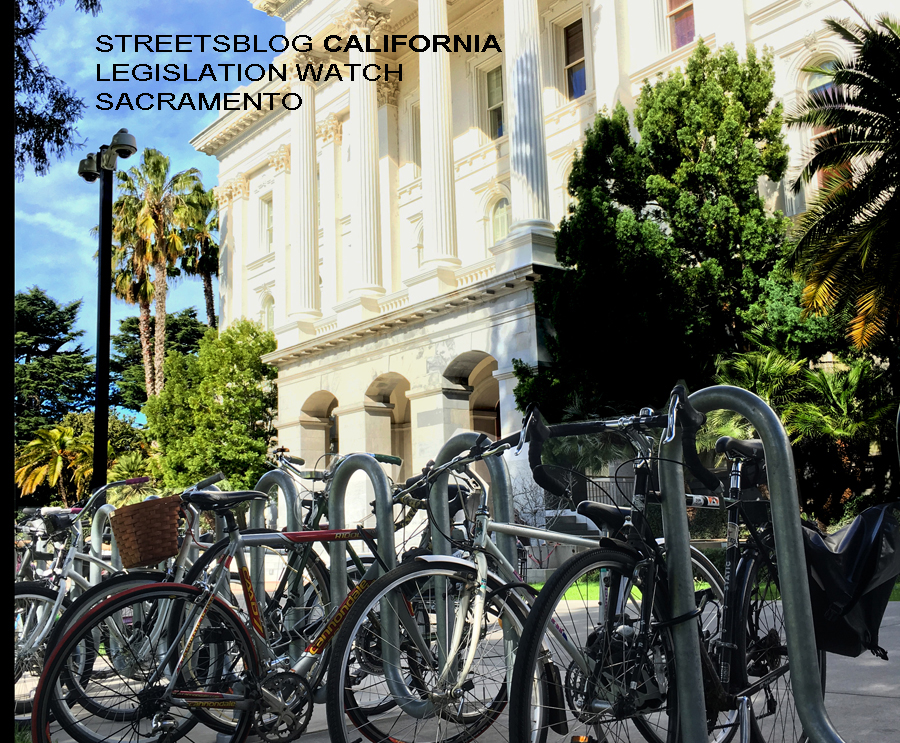Within the budget bill awaiting the governor's signature is $10 million for incentives to buy electric bicycles. This is included in a planned $425 million investment in the Clean Vehicle Rebate Program, which is part of nearly $1 billion in investments in clean vehicles, including trucks and transit and school buses.
Under A.B. 117, a bill from Assemblymember Tasha Boerner Horvath that stalled in the Assembly this year, e-bike incentives would have focused on low-income people, who not only tend to be more burdened with bad air in their communities, but are likely to have a harder time coming up with the money to buy e-bikes. But all equity rules were stripped from the budget bill.
California's clean climate goals will be hard to reach, and there is pressure to deploy this budget surplus as quickly as possible. The argument has been that since everyone needs to switch from gas-powered vehicles to zero emission vehicles sooner than later, incentives and rebates should be more broadly available to all.
“The state had an opportunity to prioritize equity by targeting these e-bike incentives to those who would benefit the most: low-income participants," said Román Partida-López, legal counsel working on transportation equity at the Greenlining Institute. "However, the decision to do away with the equity language demonstrates that equity continues to be a talking point, and not a practice."
"It also shows that the state has not learned from past experiences on incentive programs that don't have equity, which will lead to a program that primarily benefits high-income consumers who don't need an incentive to purchase e-bikes.”
$10 million could pay for thousands of e-bikes. Assemblymember Boerner Horvath told the California Bicycle Coalition that “making e-bikes more affordable is one of the most effective ways to get Californians out of their cars and reduce emissions."
"I’m thrilled that the full funding I requested for purchase incentives, education, and training is included in the budget we approved," she said. "This program represents a priority shift in the right direction and, once implemented, will help folks from all backgrounds choose a healthier, happier way to get around.”
Dave Snyder, executive director of CalBike, says that "e-bikes can be the centerpiece of California’s strategy to replace gas-powered car trips to reduce air pollution and greenhouse gas emissions while also advancing equity, promoting public health, reducing traffic, and helping working families save money."
"Until now, California has focused its efforts on electric cars," he points out. "This new program breaks that funding dam and begins investing in a technology that is a known carbon crusher, e-bikes. E-bikes are the cleanest EV.”
The goals of these rebates - and e-bike incentives - are to "encourage the earliest adoption of zero emission vehicles, encourage a sustainable market, and seek to reach the state’s goal of five million zero emission vehicles by 2030," according to the bill. Most of the clean vehicle programs, including Clean Cars for All, are run by the Air Resources Board.
E-bikes have more potential to dramatically change transportation than some give them credit for. Most trips made by people in California are short - according to CalBike, a full sixty percent of all trips are six miles long or less. Electric bicycles can easily replace those trips.
E-bikes are also useful for hauling children, equipment, and groceries, and for easily climbing hills.
People who know this have been buying e-bikes at a tremendous rate. These incentives will make them even more attractive to potential buyers - at least, to anyone who is able to get on the program's list before the money runs out.






